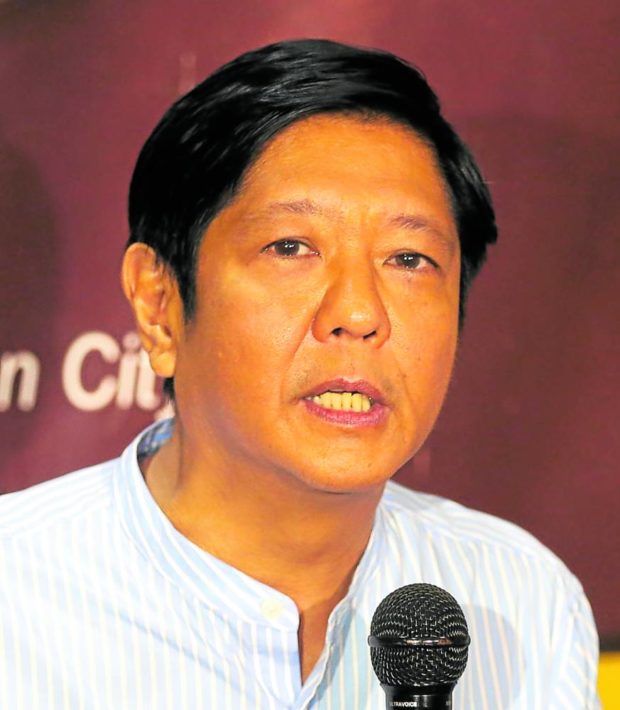MANILA, Philippines — The camp of presidential aspirant Ferdinand “Bongbong” Marcos Jr. on Monday insisted that he is qualified to run for the highest government post in the 2022 elections in its response to the Commission on Elections’ (Comelec) summons on his disqualification case, saying his tax evasion conviction is not a crime involving moral turpitude.
Marcos’s camp. through lawyer Estelito Mendoza, said it has already submitted its five-page answer to the summons issued by the Comelec last November 11, seeking the dismissal of the petition and for the en banc commission to hear the case by face-to-face oral arguments, instead of through virtual or video conferencing.
“Wherefore, it is respectfully prayed that the petition be dismissed. On the matter of hearing the petition, considering that the petition refers to the highest elective position in government and calls for the participation of the people in general, [it is respectfully prayed] that the petition be heard by face-to-face argument instead of a virtual or video conference,” Marcos’ plea read.
The petition, filed last November 2, asserts that Marcos is not eligible to run for any public office owing to his conviction for failure to file his income tax returns meted out by the Quezon City Regional Trial Court in 1995. The disqualification case was later on raffled to the Comelec’s Second Division.
Marcos’s camp, however, argued that the petition will show that it is “bereft of any specific allegation of a material representation required under Section 74 of the Omnibus Election Code.”
It noted that Marcos had been elected to several elective positions, which he also qualified for.
“It is of judicial notice that the respondent [Marcos] has all the qualifications of a President under Section 2, Article VII of the Constitution and consequently there can be no violation of Section 78 in relation of Section 74 of the Omnibus Election Code upon which a petition such as the one now before the commission,” Mendoza said.
Mendoza further argued that Marcos’ conviction in the tax case does not equate to a crime involving moral turpitude, for which one might be disqualified. Thus, the petition can be dismissed on the same basis.
“[What] is clear and certainly beyond dispute is that the [Court of Appeals] CA decision does not, and no inference can be made from its decision that [Marcos], BBM in this case, has been found by the CA of committing a crime involving moral turpitude,” he added.
There are currently three petitions before the Comelec seeking to cancel the COC of Marcos.
His camp had dubbed as “cheap political gimmicks” the petitions seeking to disqualify him from the 2022 presidential elections.
Marcos received a copy of the summons on the same day it was issued on Nov. 11, and was given five days to submit his response. However, his camp sought an extension to respond, which was granted.
The Comelec then deferred the proceedings of Marcos’s disqualification case, a move that was assailed by petitioners led by former Supreme Court spokesman and human rights lawyer Theodore Te.
Te claimed earlier accused election officials of “arbitrariness” after they moved for the submission of the parties’ memoranda indefinitely without any of them requesting for such an action during the preliminary conference on Friday.
They said the Comelec officials initially told them to turn in their memoranda, which will contain their respective arguments and evidence, on Nov. 29.
The disqualification case stemmed from Marcos’ failure to file income tax returns and pay income taxes from 1982 to 1985 while he was governor of Ilocos Norte while his father, the late strongman Ferdinand E. Marcos was in the seat of power and the country was at the tail-end of the martial law regime.
The Court of Appeals in 1997 upheld the conviction and the fines imposed by the trial court but removed the seven-year prison term. The conviction became final after Marcos withdrew his appeal before the Supreme Court in 2001.
